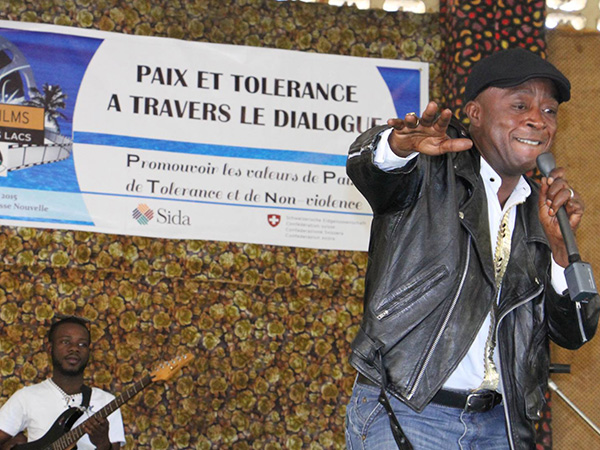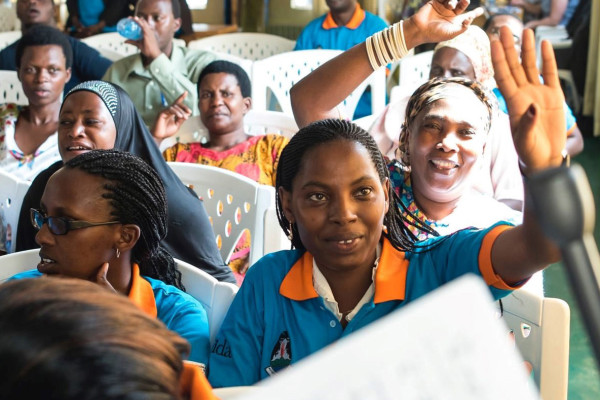Great Lakes film festival: Building peace through cinema

Tolerance, identity and peace. Those were the main themes at the Great Lakes Film Festival held earlier this year by our partners Never Again Rwanda and the Pole Institute. People traveled from across Rwanda, DR Congo and Burundi to attend the two-day event in the Rubavu district of Rwanda.
The Great Lakes region has long struggled with internal conflict and all too often violence flares up due to disputes over power and land use. To build bridges of trust between communities across the region the organizers encouraged debate on what is at the heart of violence.
The two films screened at the festival, “Identity based manipulations; Issues and Challenges for peace in the Great Lakes Region” and “Hands off my land”, challenged underlying stereotypes that are driving conflict and fostered discussion on how everyone can play a part in bringing peace to a region that has for too long known the struggle of conflict.
At the event, youth from across the Great Lakes region talked about how the construction of negative stereotypes and the manipulation of identity was a formidable barrier to peace. They shared their thoughts and ideas on how to move forward and begin to deconstruct these negative social perceptions, and how they could unite in their quest for peace in the Great Lakes.
The organizers believed that the messages they wished to share through film would resonate better than merely talking. “Film is a catalyzer of thought,” according to Professor Nasson Munyundamatsu, the country director of Never Again Rwanda, who spoke at the event. “It facilitates interaction. The images seen in film have the power of transferring important messages to the people, messages that last, messages that words sometimes miss.”
“Apart from bringing people together, this film festival has a great importance because films have the capacity to transfer a more profound message than verbal communication alone,” Munyundamatsu continued.
The event forms part of Interpeace’s Great Lakes Cross-border Dialogue for Peace Programme that seeks to build trust and deconstruct the negative stereotypes that exist between the Great Lakes communities who have grown up through conflict. It is hoped that the messages of the film will be long lasting, laying another foundation for peace throughout the Great Lakes region.

